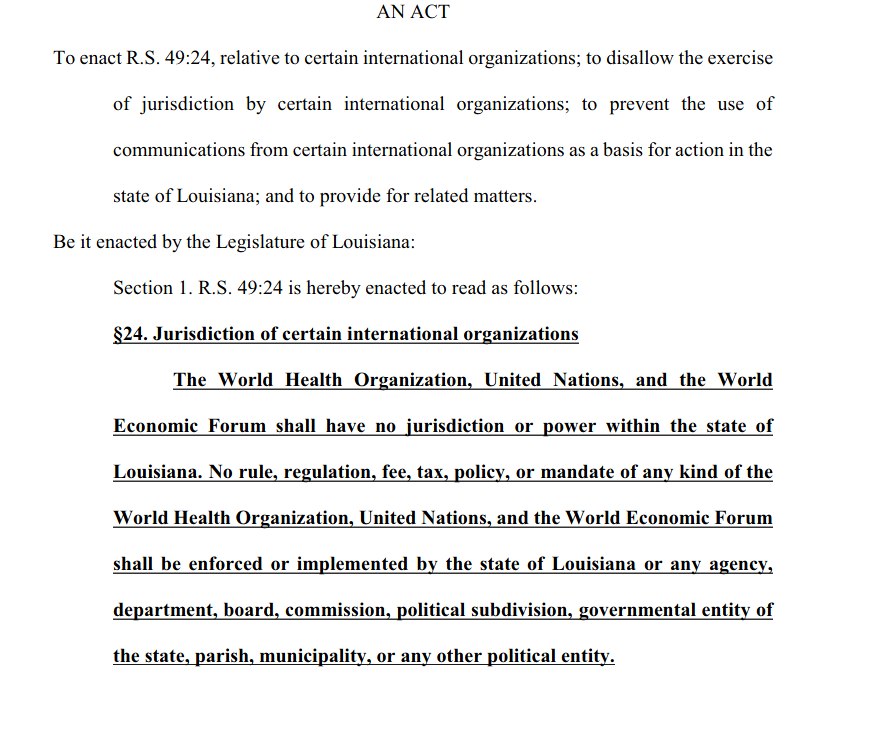States are asserting their rights to self-determination – and protecting their constituents from global governance.
Please take the time to read these two amendments to the US constitution. It will take less than 30 seconds:
The Ninth Amendment:
The enumeration in the Constitution, of certain rights, shall not be construed to deny or disparage others retained by the people.
The Tenth Amendment:
The powers not delegated to the United States by the Constitution, nor prohibited by it to the states, are reserved to the states respectively, or to the people.
These are the constitutional amendments that some states are using to protect their citizens. Let’s look at these recent wins:
Louisiana
On March 26, the Louisiana state senate unanimously passed SB 133, which states that the WHO, the UN, and the WEF shall have no jurisdiction in their state. 28 Republicans and 9 Democrats voted unanimously.
Utah
On January 31, the Utah Governor signed SB0057, which upholds the principles of state sovereignty by asserting tenth amendment rights. Read more on this bill here: “What is nullification? A win for states’ rights”.
Florida
In 2023, Florida passed SB 252 “Protection from Discrimination Based on Health Care Choices” which includes language asserting that state governments may not adopt international agencies’ health guidelines unless expressly authorized to do so by law, rule, or executive order.
Is your state on the list, or working on it? Check here:
Further reading:
Want to understand more about the nuances of states’ rights and the tenth amendment? Read the letter written in 2022 by 15 state attorneys generals. They discuss treaties, state sovereignty, and the authority to govern. Interesting reading, written by legal minds:
2022: Attorneys General from 15 states Petition Against the WHO
Interested in really understanding the different types of treaties? Did you know there are international agreements, executive agreements, congressional-executive agreements, and more? What sort of standards are there for senate ratification?
Treaties & International Agreements
Want to understand, in simple language, why states can assert the WHO has no power over them? Did you know that the federal government has acknowledged this in the recent past?











